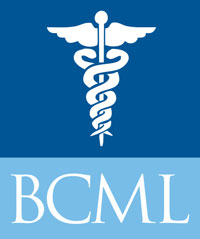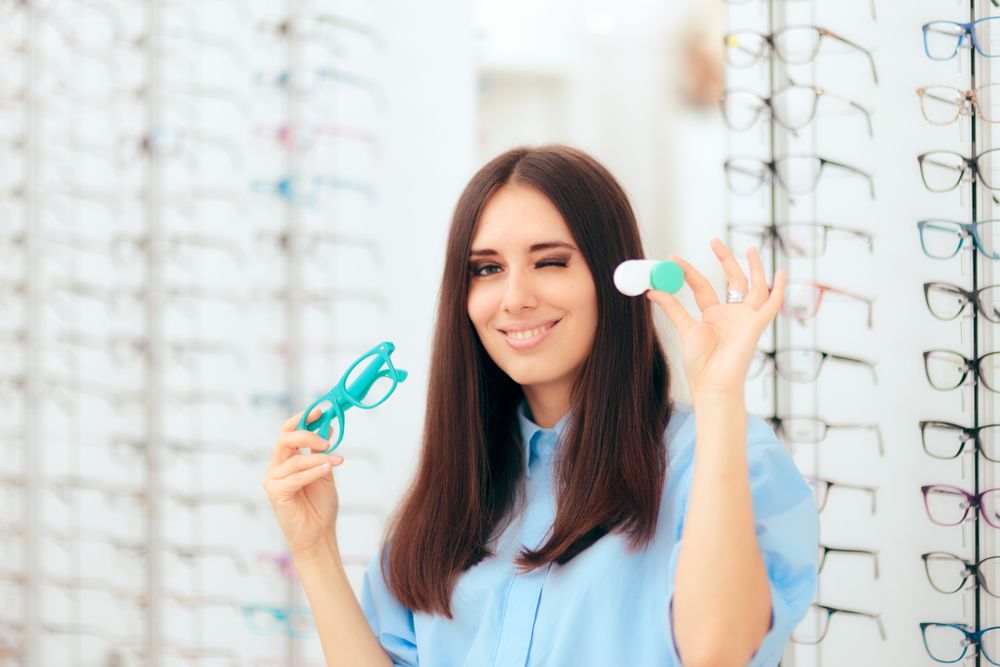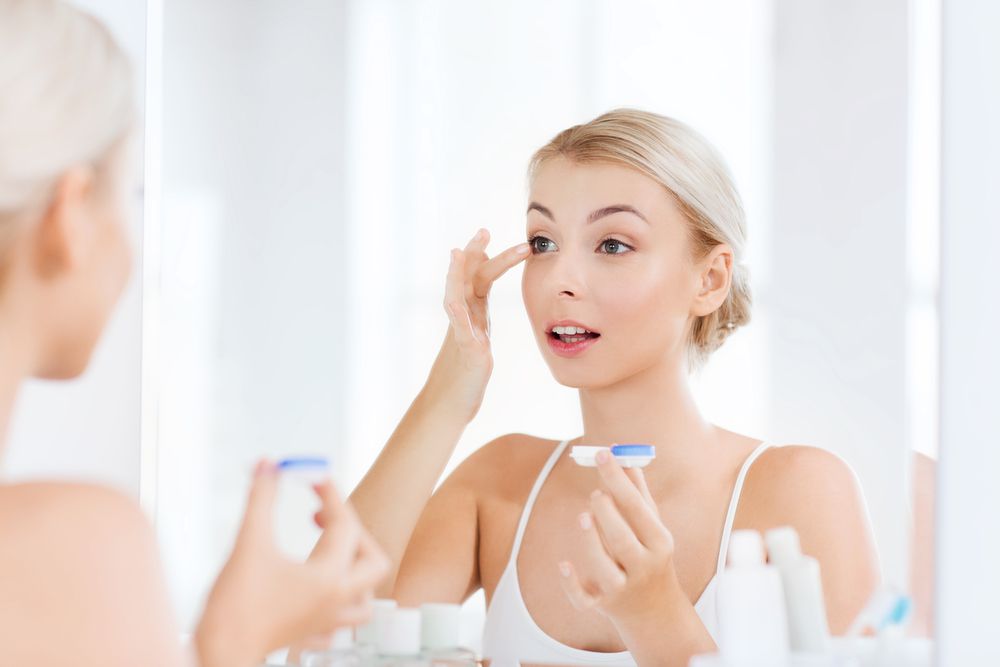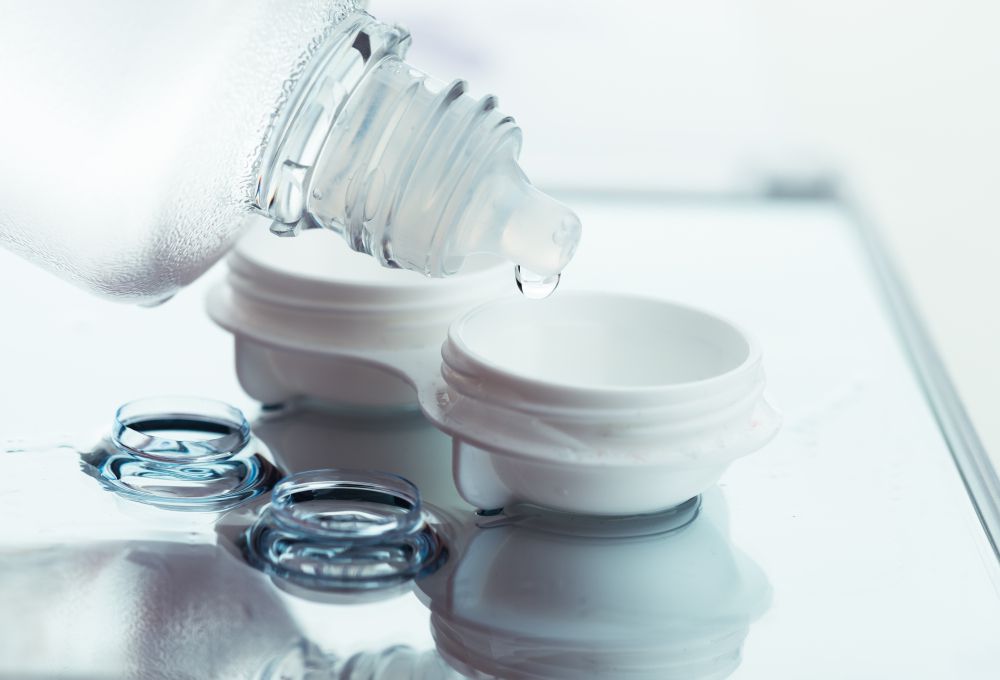As we navigate our way through a world with COVID-19, even the most mundane tasks like wearing contact lenses have taken on a new meaning. Up until a few months ago, wearing contacts would not have raised any major concerns about safety. However, as we seek to minimize the spread of the disease, anything that forces us to touch our faces is being questioned.
So, is it safe to wear contact lenses with the COVID-19 pandemic in full swing? Is wearing glasses automatically better? In short, most specialist optometrists in Canada agree that wearing contact lenses is safe and no, wearing glasses is not necessarily safer. There are some exceptions to this and ways to reduce risks when wearing either. In this blog, we’ll explore everything you need to know to wear your contact lenses safely.
How to Safely Wear Contact Lenses
The rules for wearing contact lenses during the pandemic are similar to the precautions you should be taking normally. The difference now is that there are additional COVID-19 related risks if you do not follow these precautions. Also, if you tend to be forgetful about taking out your contact lenses at night or disinfecting them properly, now is the time to get into better habits. In this section, we will answer the most answered questions relating to contact lens usage and the novel virus.
Why take out your contact lenses at night?
Even contact lenses that are approved for multi-day use really should not be kept in continuously. Not only do your eyes benefit from the time to breathe without the lenses, leaving them in increases the risk of infection. This holds true at all times, not just because of COVID-19.
With the risk of catching the virus, it is even more important to be mindful of taking care of your eyes and properly disinfecting contact lenses. While removing and disinfecting your contacts will not directly impact your risk of getting the virus, it can reduce the possibility of irritation.
Keeping your contact lenses clean means you are less likely to experience dry or itchy eyes. This condition causes people to rub their eyes more. Remember, to stay safe from the virus, anything that reduces the chances of you accidentally touching your face or eyes should be practiced.
What about contact lenses approved for overnight wear?
Advancements in contact lens technology have given us breathable contacts that can be kept in overnight. However, even these are best if they are removed before sleeping. Your eyes will always feel better if they are given this time without a contact lens. Healthy eyes equal less irritation and a commensurate reduction in the risk of touching your face.
How to properly remove and insert contact lenses
Proper hand washing is critical to the safe insertion and removal of contact lenses. Ideally, you should wash your hands with soap and water for 20 seconds making sure you get every inch of your hands. Then, dry your hands with a clean towel.
After thoroughly drying your hands, you can then safely remove or insert your contact lenses. It is very important that you avoid touching any other surface before touching your eyes. To avoid recontaminating your hands, even the water faucet should be turned off with a paper towel.
Hand sanitizer products with a minimum alcohol content of 60% can be used to cleanse your hands before inserting or removing your lenses. To do this properly, you must thoroughly coat your hands in the sanitizer gel and rub it in until it fully evaporates.
While this will disinfect your hands, soap and water will do a more thorough job. There is also a chance that there may still be residue from the sanitizer on your fingers that could irritate your eyes. Sanitizers with scents and lotion added can be especially problematic for this task. Therefore, be mindful of the kind you are using.
Can you wear contacts when you’re sick?
It is not recommended for you to wear contacts when you are sick. Any virus you have can be found in the mucous membrane of your eyes. Consequently, the increased touching of the eye can spread the virus further.
Moreover, symptoms of the common cold or flu are likely to cause some eye and sinus irritation. Watery eyes, itchy eyes, dry eyes can all be further irritated by contact lenses. If you are experiencing symptoms of COVID-19 or any other illness, you should discontinue the use of your contacts and also limit any contact with others.
Eye irritation is not a common symptom of COVID-19. However, the coughing associated with the illness can create watery eyes for some.
Related Article: Coronavirus Symptoms and Best Ways to Avoid Covid-19
What’s Better: Disposable or Reusable Contact Lenses?
There are two primary types of contact lenses when it comes to durability; single-use disposable contacts and ones that can be reused for a week or month. With proper handling, both of these contact lenses are safe to wear during the COVID-19 pandemic.
However, because reusable contact lenses need to be disinfected immediately after use, you need to be especially diligent in cleaning them. Having a fresh pair that you can change daily will reduce the chances of eye irritation and the urge to rub your eyes throughout the day.
No matter what kind you wear, follow the guidelines for proper use. Disposable contacts should only be worn once and removed at night. Equally, reusable contacts should only be used for the length of time they are approved for by an optometrist near you.
When Should You Wear Glasses?
Those suffering from dry eyes or any condition that prevents them from wearing contacts comfortably for long periods should consider glasses. For people like this, this condition may mean that contact lenses are not safe to use during the COVID-19 pandemic. The discomfort is likely to give you the immediate urge to rub your eyes. Remembering to wash your hands before doing this can prove difficult.
However, glasses also require adjustment throughout the day. As a result, proper handwashing practices should be exercised. In practice, this is likely to be more manageable than itching or pain from contacts. In a pinch, you can adjust your glasses by using the back of your wrist which is less likely to have touched any contaminated surface. This is not an option with contacts, giving glasses a slight edge in this debate.
Do Glasses offer Protection Against COVID-19?
One myth floating around is that glasses offer protection against the virus entering through the eyes. There is no existing evidence that proves this theory. While a pair of glasses may prevent some droplets from a cough or sneeze from entering your eyes, there is still space around your glasses where the virus can enter.
Additionally, eyewear will not offer protection for your nose or mouth. If you are standing close enough for an infected person’s respiratory droplets to reach your eyes, those droplets can also reach your nose or mouth. If you are wearing a mask over your nose and mouth, this may provide some help. However, at such a close range, cloth masks will not guarantee that respiratory droplets will not reach your face.
In short, a combination of glasses and a cloth mask are not a substitute for practicing safe social distancing. Even with protective layers, you should strive to stay at least 2 meters apart from others and avoid going out into crowded places unless absolutely necessary.
The Advantages of Contact Lenses
Contact lenses may actually offer a safety advantage over glasses for the duration of the coronavirus outbreak. While taking extra precautions when inserting or removing the lenses can seem daunting, once they are in, most people can wear them for 14-16 hours without adjustment.
In contrast, glasses are likely to be taken on and off multiple times per day. This increases the likelihood that you will touch your face throughout the day. Unless you can wash your hands before each adjustment to your glasses, contacts may be a better choice.
Managing Your Eye Health During the Pandemic
With so many social distancing rules affecting our health and ability to be social, getting proper medical care can be daunting or seem unimportant in contrast. However, staying on top of preventive care and pre-existing conditions is one of the best ways to manage anxiety and avoid emergency situations.
BCML is offering telehealth appointments to ensure our patients can get the care they need without risk. We can help you manage and diagnose a range of conditions and refer you to specialists when needed. To manage your eye health and other concerns during this time, contact us at 416-929-1900. We’ve got you!



